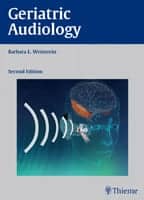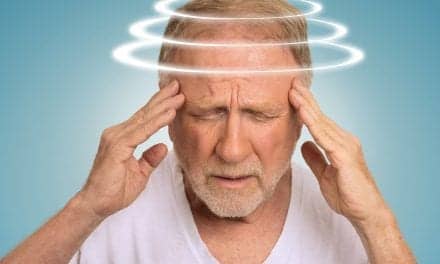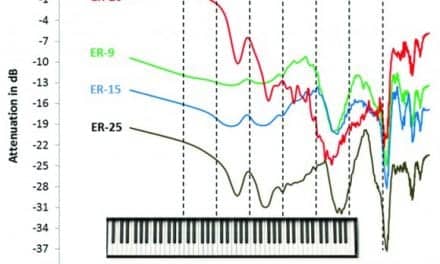Smoking e-cigarettes, or “vaping,” may be hazardous to your hearing health. So says Australian musician Rob Swire, who recently took to social media to share the fact that he believes his vaping habit led to hearing loss in one ear. Luckily for Swire, the hearing loss was temporary, but through his experience he learned that certain chemicals used in “e-juice”—the potion one inhales to create the vapor from an e-cigarette—are ototoxic, or toxic to the ear. Swire claims he has quit vaping to save his hearing, and is using social media to urge others to do the same.
According to Swire, his doctors believe that the ototoxic property in his e-cigarettes was possibly propylene glycol (PG). Several blog posts that cropped up after Swire’s tweets about his hearing loss went viral reveal that others using e-cigarettes have experienced similar symptoms after “vaping”—from occlusion in the ears, to tinnitus and hearing loss. Most of the blog posts, as well as the recent tweets from Swire, have emphasized the fact that a discussion connecting hearing loss to e-cigarettes is largely anecdotal, because no studies to date have been conducted on the potential negative effects on the ear or hearing from the propylene glycol contained in e-cigarettes or other inhalers. Further, several commenters have asked if Swire’s hearing loss may have been caused by exposure to noise or other factors known to cause hearing damage.
It isn’t clear if Swire had been using hearing protection or if he’d had his hearing tested before his recent experience, but in his tweets, he described his symptoms as coming on fairly suddenly after vaping and urged others who experience similar symptoms to stop vaping immediately, and consult an Ear, Nose and Throat (ENT) doctor. Swire’s symptoms reportedly included ear occlusion, ear pressure, loss of low and high frequencies, difficulty understanding people in noise, and tinnitus.
Swire later sent a tweet stating he’d be willing to help fund a research study on hearing loss and related problems induced by exposure to PG from e-cigarette vapor. He asked that those interested tweet him @Rob_Swire, or contact him through his management website.
While we don’t yet know if the chemical vapor from e-cigarettes can cause hearing damage, or if e-cigarettes can compound or exacerbate a sensorineural hearing loss, the ototoxic properties of propylene glycol and other alcohol-based solvents have been studied in relation to eardrops and other products. The research literature indicates that these solvents can pose a danger to hearing when used topically.
According to published studies, eardrops (antibiotic drops, swimmer’s eardrops, etc) that contain high concentrations of PG or other alcohol-based solvents should be avoided or used with caution due to the damage they can cause to the ear, particularly if there is a perforation in the eardrum, or tympanic membrane.
Are e-Cigarettes a Healthy Alternative to Tobacco?
Additionally, the potential ototoxic effects of nicotine cigarettes have been studied, and smoking is generally considered to be a risk factor for hearing loss. At least one research study examined the health impact of the chemicals in cigarettes and revealed the joint effects of smoking and noise exposure on hearing loss, which could indicate that e-cigarettes might pose a similar risk.
Often touted as a healthier alternative to conventional nicotine cigarettes, e-cigarettes are still new and their effects on our health are still unknown, so the FDA cautions consumers about the potential dangers. A benefit of Swire’s willingness to share his recent vaping-hearing loss experience may be that smokers will think twice before switching to e-cigarettes as a so-called “healthy” way to kick the habit.
“We may not have all the information yet, but e-cigarettes are certainly an important potential new cause of sensorineural hearing loss to be aware of,” says Maurice Miller, PhD, professor emeritus of Audiology at New York University Steinhardt School of Culture, Education and Human Development, and HR Editorial Advisory Board member. “There may be other factors contributing to Mr. Swire’s hearing loss, such as noise exposure and previous tobacco smoking, but the potential harm to hearing of e-cigarettes is worth exploring further.”
Since the current discussion of e-cigarettes as a potential cause of hearing loss has largely involved musicians or DJs, Dr Miller emphasized that before drawing conclusions, a licensed audiologist would need to know if the patient had any noise-induced hearing loss before vaping, if there were other risk factors involved, and if they were consistent about wearing hearing protection.
Dr Miller added that people experiencing any or all of the symptoms described by Swire should be encouraged to visit an audiologist to have their hearing tested above the range that is used in most conventional hearing tests, which test in the 125-8,000 Hz range. Dr Miller advises that the hearing test be extended to the 10,000-20,000 Hz range. In some instances, the hearing loss could be a late onset problem, so periodic audiologic assessments would also be advised.
Disclaimer: HR readers are cautioned that strong language is used in some of Swire’s tweets and the Reddit.com, Vaperanks.com and DancingAstronaut.com blog posts linked here, but these are included in the interest of providing original sources and background material for this story.
REFERENCES:
Blogs or social media links:
http://www.youredm.com/2015/07/06/rob-swire-attributes-loss-of-hearing-to-vaping/
http://vaperanks.com/musician-attributes-hearing-loss-to-electronic-cigarettes/
https://audicus.com/smoking-your-ears-the-impact-of-cigarettes-on-hearing-loss/
http://www.dancingastronaut.com/2015/07/rob-swire-loses-hearing-left-ear/
Research links:
http://www.ncbi.nlm.nih.gov/pubmed/7192939
http://www.sciencedirect.com/science/article/pii/S0196070988800267
http://www.ncbi.nlm.nih.gov/pubmed/1207541
http://www.dizziness-and-balance.com/disorders/bilat/ototoxic_drops.htm
http://occmed.oxfordjournals.org/content/55/1/48.short
http://www.sciencedirect.com/science/article/pii/S0091743504002816
http://www.fda.gov/NewsEvents/PublicHealthFocus/ucm172906.htm
https://www.ima.org.il/FilesUpload/IMAJ/0/57/28687.pdf
Sources: Rob Swire; Reddit; Vaperanks; DancingAstronaut; Twitter
Photo credit: © Diego Vito Cervo | iStock






I would agree that they are most likely safer than predictable cigarettes and other tobacco goods
I started vaping with JUUL about 3 months ago. I noticed my “addiction” increase and now finish 3 four-packs over a 2 week period. A week and a half ago, I noticed hearing loss with white noise. Very much like the ones described in this forum. At first, I thought it was just wax because I tend to have wet wax than dry. But when I went to see the doctor, he didn’t find any. The only thing I can connect is my increased vaping. He suggested Flonase and Musinex but not help. He prescribed Prednisone and will start start on it today. I’m quitting starting today and hopefully comes back with the help of the medication.
I began to experience severe tinnitus and heart palpitations after vaping high concentrations of propylene glycol. I did not realize that PG was the precise cause, until I started researching the symptoms and found a bunch of articles like this one. It’s hard to believe that there is a planet where harmless herbs are illegal, but not even so much as a warning is required for dangerous synthetic chemicals like propylene glycol. #crazyworld
I got a double ear infection loss of stability while walking and my throat hurt so bad I couldn’t swollow my own spit…. I quit vaping and feel much better
I’m 42 I quit smoking cigs 4 years ago I started vaping I have not been affected by loud noises to cause my ears to ring or anything else. If you put your phone 1 inch away from your ear with the vol all the way up playing a song you can hear the ringing and the music at the exact vol. It’s making me change for the worse in a bad way it don’t stop ever I haven’t changed any meds I’ve been on in 10 years or different food I stay in a pattern and always have I will be trying vg with less pg soon sick because I’ve just ordered 2 120 ml bottles of 50/50. I will update as soon as it try a lower pg.
There are many people losing their hearing due to the use of e-cigarettes, this makes health very bad. I’m trying to figure out the main causes of this problem to help a friend of mine, thanks for sharing.
As someone currently suffering from it I’d assert that juul causes “hearing problems” as well but for different reasons. I find that since it is less harsh ive been using it more meaning its likely the amount of nicotine im taking in is above my tolerance. This has caused bruxism or teeth grinding in my sleep. Because of the teeth gringing it has caused temporary inflamation in the ear canal which is somewhat common with TMJ disorder.
I’ve experienced multiple ear problems and pneumonia during high vaping.
Definitely a connection between vaping and blocked ear. I just googled to see if anyone else had experienced and found this site.
Yep, propylene glycol based vaping juice can cause tinnitus – it did for me anyway. So I swapped to a straight VG (vegetable glycol) mix and the ringing disappeared within a couple of days.
No one knows how safe vaping is, but I feel much healthier now than when I was on 20 cigs a day and also better than the 8 years of non-smoking which caused me to eat a lot of garbage and walk a knife edge between obesity and associated diabetes risk, or the poisonous depressants contained in the artificial sweetener which is used in most (about 95%) chewing gums.
Electronic cigarettes are a safer alternative to tobacco cigarettes. Normal tobacco cigarettes have above 4000 chemicals. E vapor liquids have none of these. Tobacco smoking has some issues when it comes to public health and usability that you don’t have to worry about when you use E cig liquid. And I don’t think it is the reason for the hearing loss.
Could formaldehyde contribute to hearing loss? What the vaping industry fails to mention is that high-power vaping can produce more formaldehyde than smoking cigarettes.
I think this is an informative post and it is very useful and knowledgeable. Therefore, I would like to thank you for the efforts you have made in writing this article.
I discovered the same thing happened after a colonoscopy. The Golytely fluid that I was required to drink prior to the procedure resulted in ringing in my ears (tinnitus) while I was drinking it. It contains polyethylene glycol which is, as this article points out, known to be ototoxic (there are only a few studies but there are clear indications). I had a hearing test performed a couple of months later. I had lost some hearing in my right ear that has never returned and the tinnitus now continues regularly. Polyethylene glycol should be banned for human consumption and for use in medical products. It is even used as a suspension for many types of ear drops. Fail!
This is really very useful. I am an e-cigarette user, but I have never experienced any trouble with hearing loss. I guess this could sometimes happen if you over-use them and consume a lot of vaping toxins, but I think tobacco nicotine is more potent than e-cigarettes, so its a bit safer using electronic cigarette when you want to quit smoking.
Hi Amy,
Thanks for your comment. It appears that you are correct that tobacco nicotine is more potent than e-cigarettes, and more toxic. A new study from Lawrence Berkeley National Laboratory (read the paper here: http://www.newswise.com/articles/view/657783/?sc=dwhr&xy=10016600) has shown that e-cigarettes are also toxic, but their toxicity depends on which e-liquids are vaped, how high the temperature of the e-cigarette gets–the higher the voltage, the greater the toxins–and how old the e-cigarette device is. The researchers found that conventional cigarettes emit 400 to 650 micrograms of acrolein per cigarette, while total emissions of acrolein for an e-cigarette are about 90 to 100 micrograms (but increase at higher temperatures). Separately, researchers tested effects due to [e-cigarette] device aging, and found emissions of formaldehyde, acetaldehyde, and acrolein—-all either carcinogens or respiratory irritants—-increased with usage. “In some cases we saw aldehyde levels increase 60%…” said co-author and Berkeley Lab researcher Mohamad Sleiman. They also found that the solvents used in all e-cigarettes (tested without other e-liquid ingredients) contained carcinogens. Read the original article for details (http://newscenter.lbl.gov/2016/07/27/e-cigarettes-emit-harmful-chemicals-emit-others/).